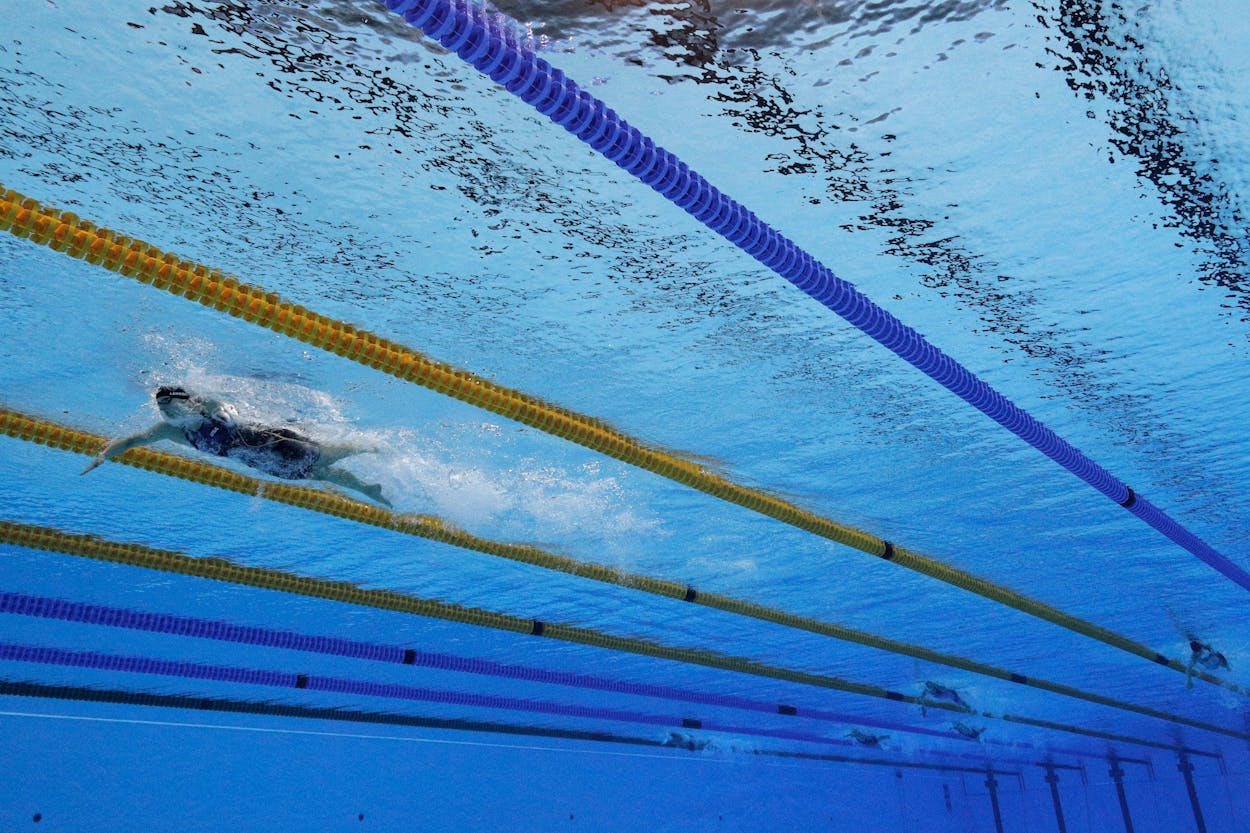A headline from Saturday’s edition of the Bryan-College Station Eagle provided the Internet with its daily dose of viral outrage over the weekend.
This headline is a metaphor for basically the entire world. pic.twitter.com/5WpQa04N0o
— Nancy Leong (@nancyleong) August 14, 2016
The problem with the headline’s framing of the story about U.S. swimmers Michael Phelps and Katie Ledecky is clear: the male athlete’s mediocre accomplishment (in the context of what’s going on in the sub-headline, anyway) gets the giant font, while the woman who made history is relegated to an afterthought. And 34,000-plus people retweeted University of Denver law professor Nancy Leong’s sentiment that it’s “a metaphor for basically the entire world.” (Not to mention the 19,000 people who retweeted YouTuber Ali Vingiano’s similar observation that she “can’t think of anything that’s better summed up what it’s like to be a woman” than the headline.) Ledecky broke a world record—at one point in the race pulling so far ahead of the pack that she basically looked like she was alone in the pool; Phelps tied for second place. Any woman who has struggled to be taken seriously or to have a superior accomplishment given equal weight to a man’s can look at the headline with uncomfortable familiarity.
BuzzFeed talked to Eagle editor Kelly Brown on Monday, and though Brown admitted that the headline could have been better, she also defended the paper’s choices. As the editor noted, the image of the paper that went around on Twitter doesn’t include the photo accompanying the headline, which is of Ledecky, not Phelps.
On social media, others defended the paper’s choice:
@nancyleong valid point obv, but to be fair, Ledecky was expected to win in WR time, anncrs called it "foregone conclusion." Phelps 2nd=news
— Jonathan Zaun (@JonathanZaun) August 15, 2016
@nancyleong Phelps is the greatest/most decorated olympian of all time. Ledecky was a no name to most before a week ago.
— Jim Wade (@jimwade) August 15, 2016
@nancyleong I’m not saying you’re wrong, but that’s a newspaper built to sell headlines. Phelps is a household name and sells papers.
— Colin Mansfield (@ColinMansfield) August 14, 2016
In a vacuum, those arguments might make sense, but the ongoing narrative of women and their Olympic achievements makes it more difficult to set aside the gender lens. Early on in the Games, trap shooting bronze medalist Corey Cogdell-Unrein received a tribute from her hometown paper, the Chicago Tribune, that recognized her first as a football player’s wife:
Wife of a Bears' lineman wins a bronze medal today in Rio Olympics https://t.co/kwZoGY0xAX pic.twitter.com/VZrjOvr80h
— Chicago Tribune (@chicagotribune) August 7, 2016
The actual story about Cogdell-Unrein is cute—it talks about how her husband’s Bears teammates wore “Team Unrein” t-shirts to a fan event. But it’s extremely common for female Olympians to be defined almost exclusively in terms of their relationship to men. The BBC described a Chinese swimmer’s surprise engagement ring as an “even bigger prize” than the silver medal she had just won; NBC honored a Hungarian swimmer’s gold medal and world record-setting achievement by cutting to her husband, who is also her coach, and declaring him “the person responsible” for her performance. In soccer, the U.S. women’s national team’s surprise early exit from the competition was considered a serious setback in their quest for equal pay to the U.S. men’s national team.
All of that is part of what critics see when they look at the Eagle‘s headline, and it’s all valid—but it’s also very strange that a paper like the Eagle, with its weekday circulation of 19,000, would get noticed by people around the world for a headline. Or, at least, that sort of thing would have been strange a few years ago. Now, in 2016’s viral world, a small local paper’s iffy decision can attract the attention of people far outside its normal readership.
Almost anyone’s mistakes can be amplified by a simple retweet, a reality that the people who write the headlines at the Eagle (and elsewhere) will likely keep in mind moving forward. It’s fair to note the mistake, but it’d be ridiculous to treat the Eagle as a particularly egregious example of sexist Olympic coverage. The headline is a small part of a much bigger problem.
Ledecky and Phelps, though, seem to be good at keeping their heads above all of this. The two celebrated their respective dominant performances (four golds and a silver for Ledecky, five golds and a silver for Phelps) by re-creating a photo of nine-year-old Ledecky at an autograph signing for Phelps in 2006—this time with Ledecky holding the pen and Phelps as the fan. Sometimes, pictures speak a lot louder than headlines.








